2023 Annual Conference – Speakers
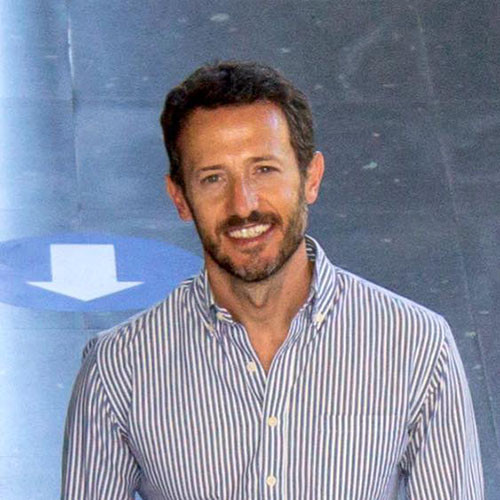
Pedro Arezes
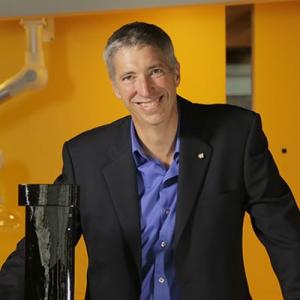
Douglas P. Hart
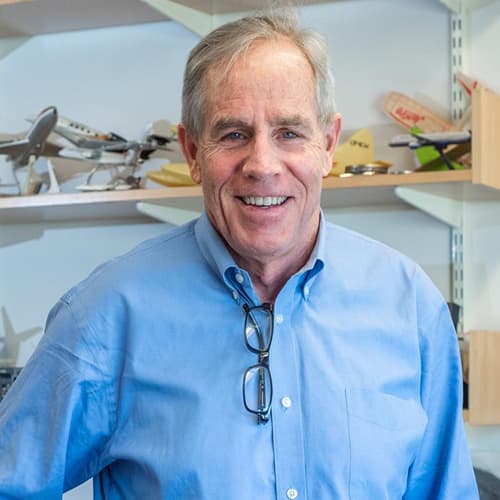
R. John Hansman
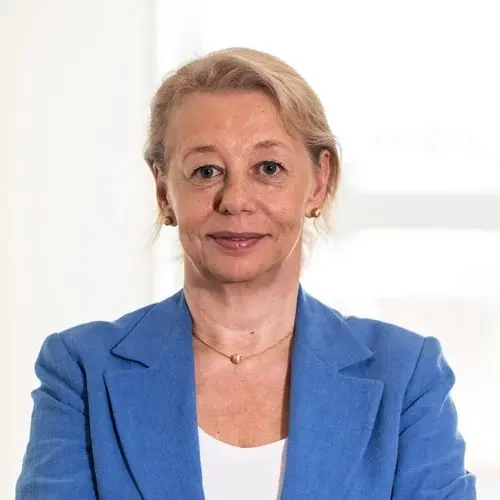
Madalena Alves
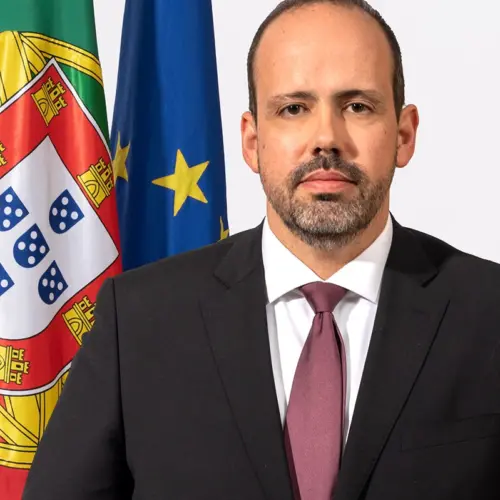
Pedro Cilínio
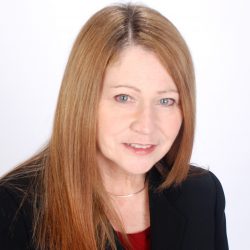
Donna Rhodes
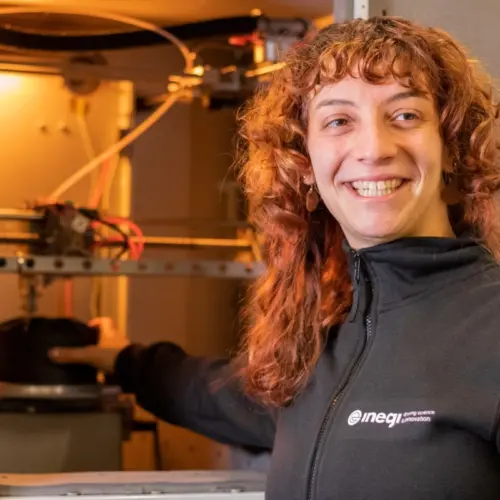
Catarina Costa
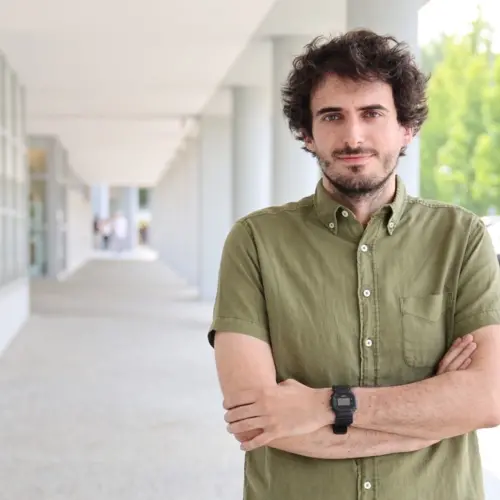
Henrique Diogo Silva
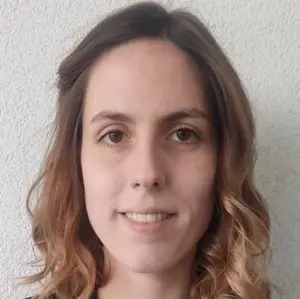
Helena Lopes
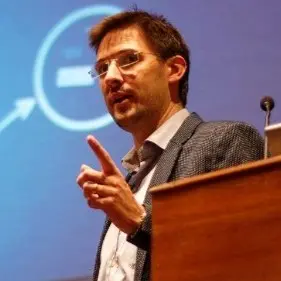
Pedro Miguel Silva
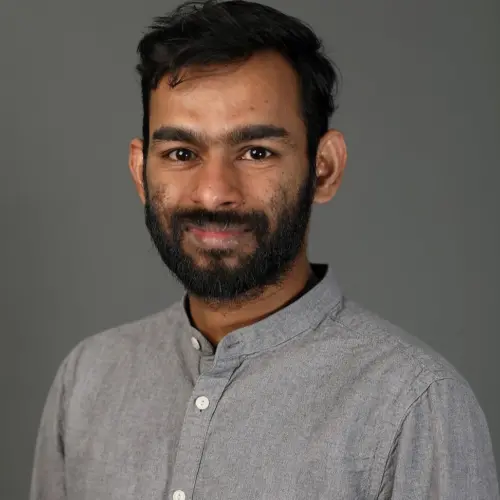
Vipindev Adat Vasudevan
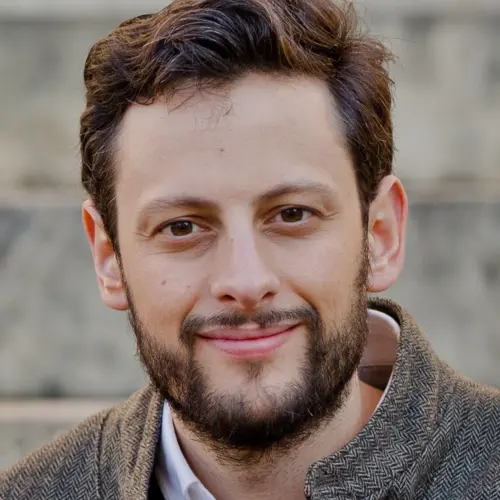
Duarte Raposo
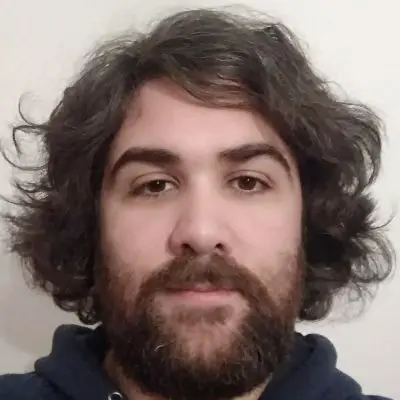
Noé Godinho
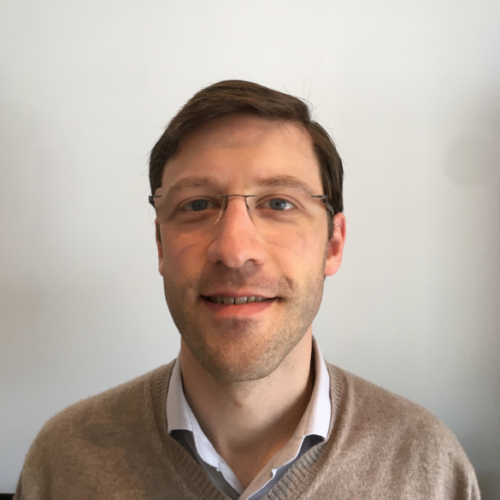
João P. Vilela
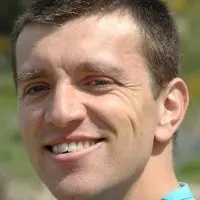
Bruno Sousa
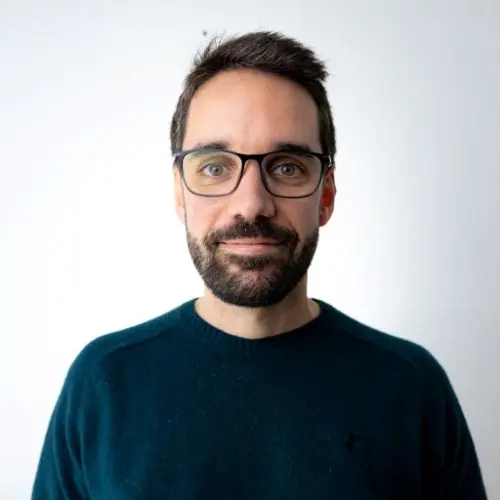
Ricardo Vitorino
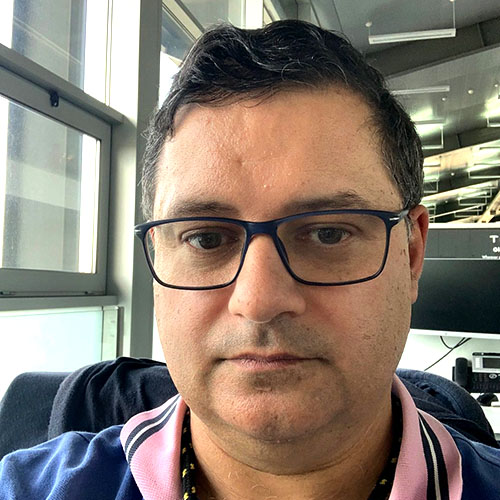
Hélder Silva
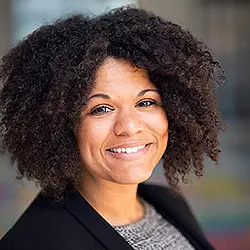
Cadence Payne
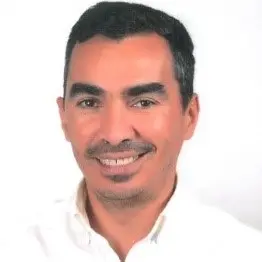
Pedro Pinto
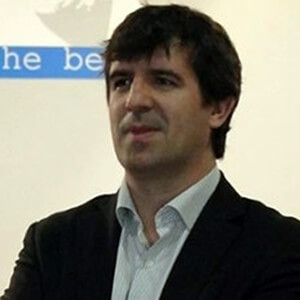
José Freitas
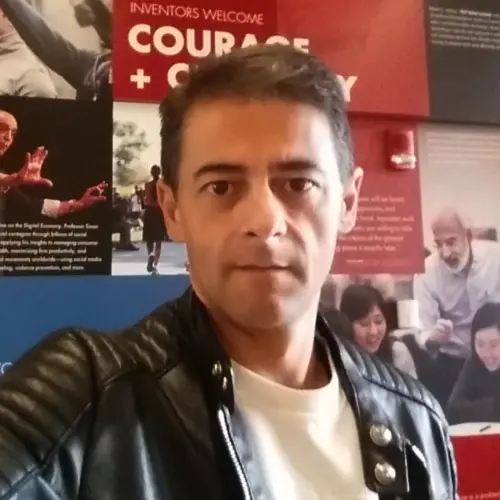
Miguel Carvalho
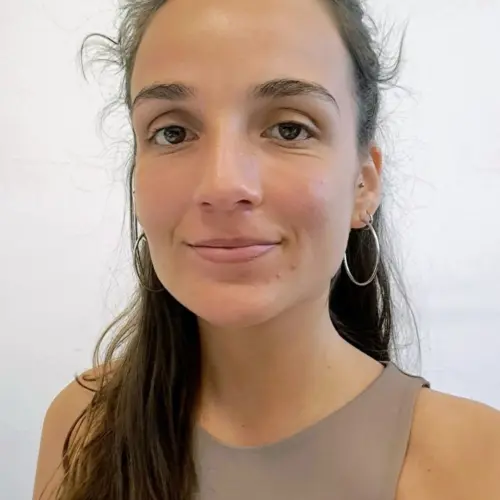
Mariana Dias
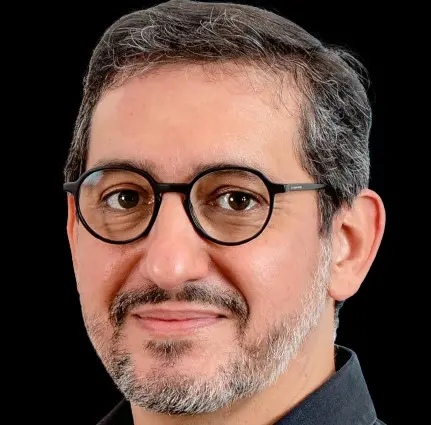
Hugo Gamboa
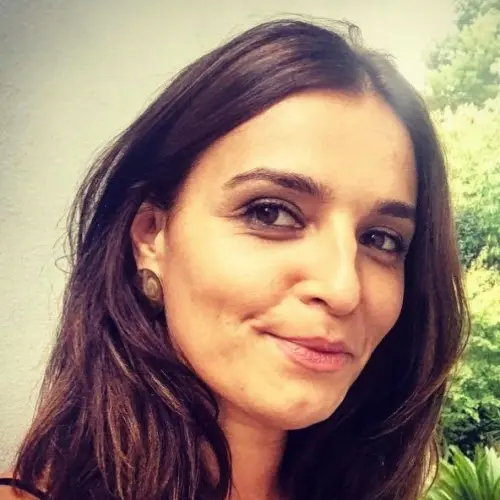
Susana Brito
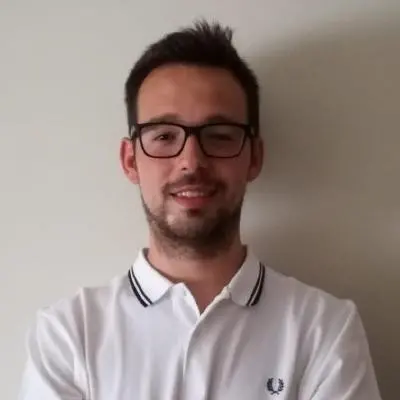
João Ferreira
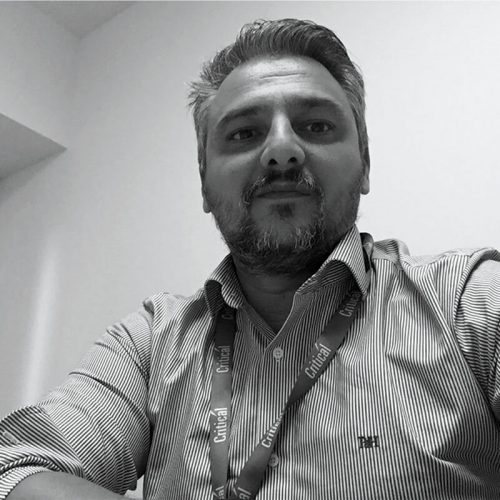
Gustavo Dias
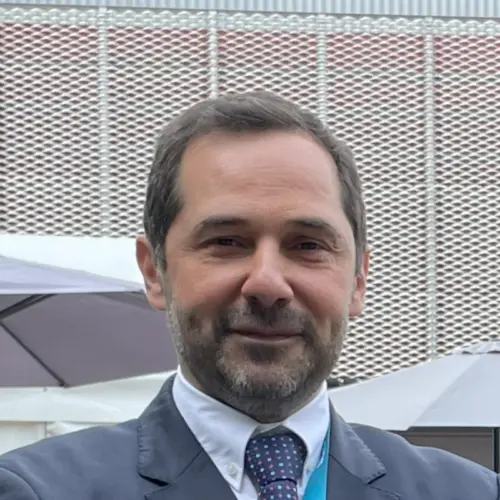
Nuno Correia
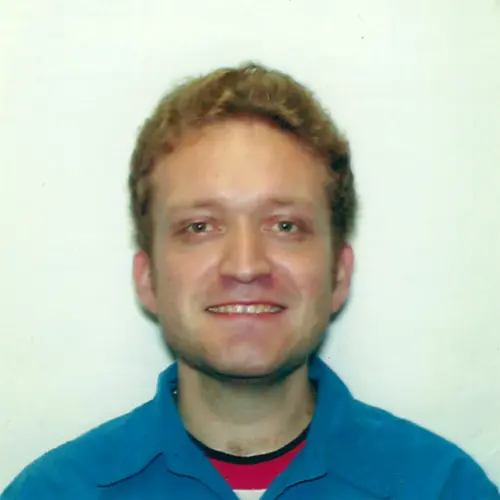
Luis Fernando Velásquez-García
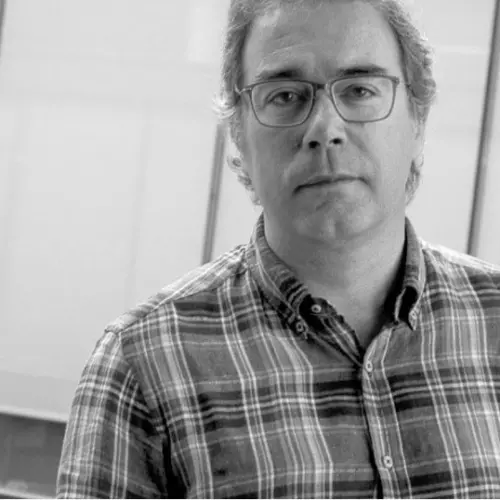
Júlio Viana
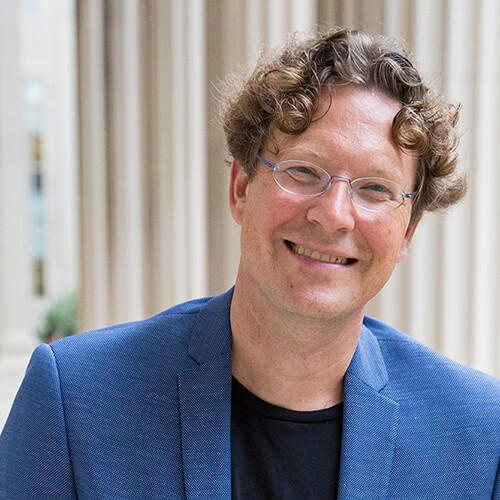
Christoph Reinhart
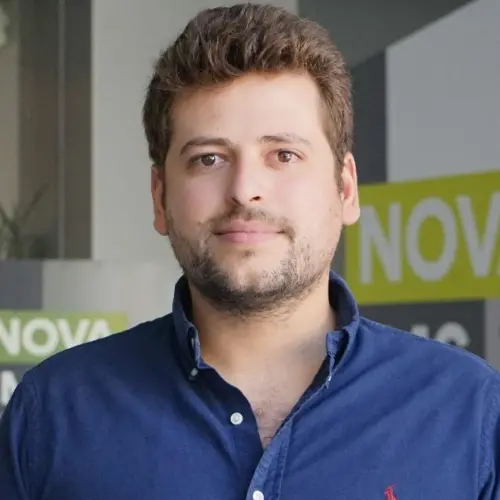
Nuno Alpalhão
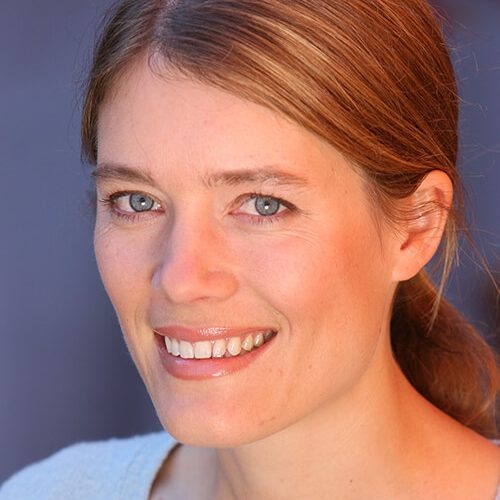
Jessika Trancik
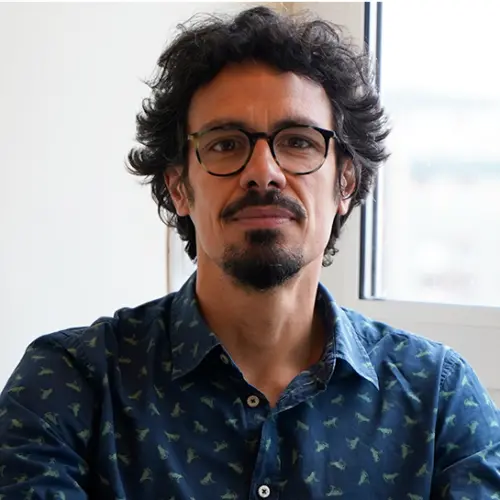
Ricardo Gomes
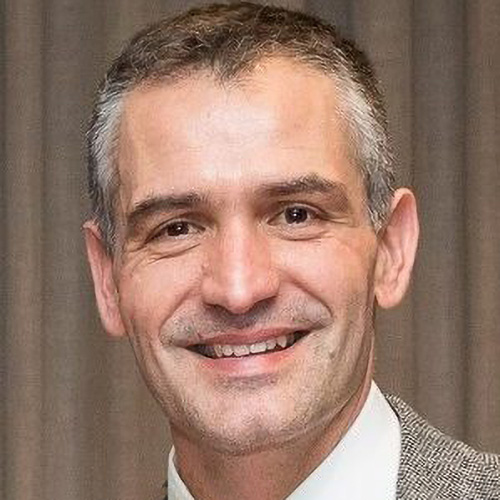
Eduardo Pereira
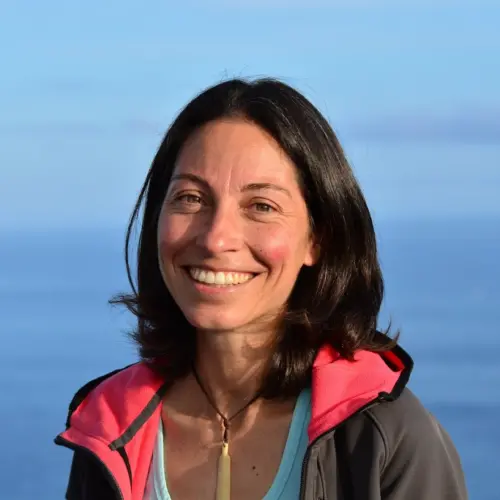
Laura González García

Pierre Lermusiaux
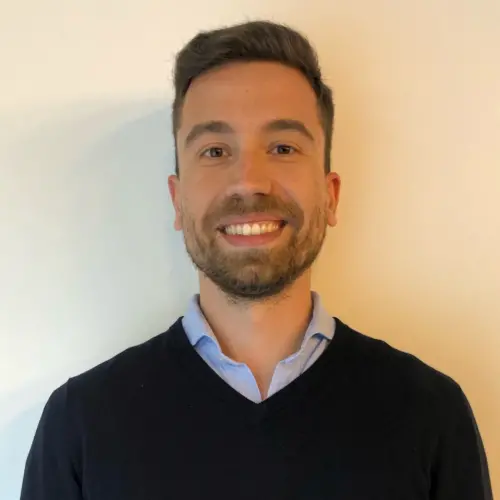
João Faria
Pedro Arezes
Since 2016, Pedro Arezes has been a National Director of the MIT Portugal Program. Since 2013, Pedro has been a Full Professor (Professor Catedrático) on Human Factors Engineering at the School of Engineering of the University of Minho, and a visiting fellow at MIT and Harvard University, both in the USA. Since 2013, he is also an invited full Professor at the University of Porto (Engineering Faculty). In 2010/2011, he worked as an invited researcher at TU Delft (Safety Science group), in the Netherlands.
Having a background on Industrial Engineering, he holds a PhD in the same domain from the UMinho, where he also coordinates, since 2003, the Ergonomics & Human Factors research group,being also the Director of the Ergonomics Laboratory and Program Director of the PhD Program on Industrial and Systems Engineering. He has published more than 100 papers in peer-reviewed scientific journals, authored and edited more than 50 Books and book chapters, and authored more than 300 peer-reviewed papers published in international conference proceedings. During his academic career he has been a member and/or PI of more than 30 international and national competitive funded research projects across several domains, with a special emphasis to the domains of Ergonomics and Human Factors, and of Occupational Safety and Hygiene. He has been collaborating (as a member of the editorial board, guest editor and/or reviewer) with more than 20 recognized international scientific journals.
Douglas P. Hart
MIT professor of mechanical engineering, MIT Portugal Program co-director, Mechanical Engineering Controls, Instrumentation, and Robotics division head, Gordon Leadership and Undergraduate Professional Opportunity Program director, and co-founder of multiple venture backed companies. Doug is a technical advisor for numerous companies and professional organizations and involved in the commercial development of technologies ranging from satellite propulsion and autonomous drones to surgical robots. Current research focus is on energy systems for ocean robotics and shipping. B.Sc. U of I, S.M. MIT, Ph.D. Caltech.
R. John Hansman
R. John Hansman is the MIT Portugal Program Director at MIT. He’s the T. Wilson Professor of Aeronautics & Astronautics MIT, where he is the Director of the MIT International Center for Air Transportation.
He conducts research in the application of information technology in operational aerospace systems. Dr. Hansman holds 6 patents and has authored over 250 technical publications. He has over 6000 hours of pilot-in-command time in airplanes, helicopters, and sailplanes including meteorological, production, and engineering flight test experience.
Professor Hansman chairs the US Federal Aviation Administration Research Engineering & Development Advisory Committee (REDAC) as well as other national and international advisory committees.
He is a member of the US National Academy of Engineering (NAE), is a Fellow of the AIAA and has received numerous awards including the AIAA Dryden Lectureship in Aeronautics Research, the ATCA Kriske Air Traffic Award, Wright Brothers Master Pilot Award, a Laurel from Aviation Week & Space Technology, and the FAA Excellence in Aviation Award.
Madalena Alves
Full Professor, PhD in Chemical and Biological Engineering from the University of Minho (UMinho). She was director of the Center for Biological Engineering (CEB), a position she held from January 2020 until she took office as President of FCT on July 1, 2022.
He graduated in Chemical Engineering from the University of Porto and obtained his master’s degree in Biochemical Engineering from Instituto Superior Técnico.
He has held positions of academic and scientific management and coordination at the University of Minho, including course directorship, participation in the School Council and in the Scientific Council of the School of Engineering.
Her research interest is in Environmental Biotechnology and she has supervised or co-supervised PhD students and post-doctoral researchers in this area and in interface areas. She was coordinator, co-coordinator or team member of numerous projects funded in Calls national and European. She collaborates with a network of international researchers, and attracted to the University of Minho a researcher who would win an ERC AdvG shared scientifically and financially with her research group. He has participated in several evaluation committees of international agencies, such as the Helmholtz Association (Germany), or the Irish and Swiss Science Foundations.
She has received several awards, including the Lettinga Award (2004), financed by international companies, BES innovation (2005) and the National Environmental Innovation Award (2006). In September 2009 she was awarded an Honorary Doctorate by the Technical University of Iasi in Romania. In January 2016 she received the honorary title of Citizen of Merit awarded by the Municipality of Viana do Castelo, where she was born.
| Source FCT |
Pedro Cilínio
Pedro Cilínio was born in Cascais in 1972. He has a degree in Industrial Engineering and Management from the Instituto Superior Técnico at Lisbon Technical University, graduating in 1997. He has a master’s degree in Industrial Management from Instituto Superior Técnico at Lisbon University, 2016, and has a master’s degree in Business Administration from ISCTE-IUL, 2017.
He was at IAPMEI and ICEP since 1998. From March 2002 to May 2003, Coordinator– IAPMEI – CEAP Analysis and Projects Centre South. From May 2003 to December 2003, Coordinator – IAPMEI – Operational Management and Quality Unit. From December 2003 to February 2004, Director – IAPMEI – Incentive to Corporate Impact Investment Unit. From February 2004 to October 2005, Director – ICEP-Portugal, Comércio e Turismo, Financial Incentives Unit. From October 2005 to May 2007, Director – IAPMEI, Incentives to Companies Unit. From May 2007 to March 2015, Director – IAPMEI, DGIC – Incentive and Credit Management Department. From March 2015 to June 2021, Director – IAPMEI, DIN – Investment for Innovation and Competitiveness Department. From June 2021 Director – IAPMEI, DCE – Corporate Capacity-Building Department.
He was on the governing bodies of several IAPMEI subsidiaries, namely from May 2001 to January 2007, member of the Supervisory Board of the SME – Capital, SA, from June 2004 to April 2005, Vice-Chair of the Board of Directors of Cedintec – Centre for Technological Development and Innovation, and from May 2007 to May 2019, Chair of the Supervisory Committee of the Cork Technological Centre.
From 2019 to December 2022 he was member of the governing board of the Cork Technological Centre.
Time::5:10
Donna Rhodes
Donna Rhodes is a principal research scientist in the Sociotechnical Systems Research Center (SSRC) at Massachusetts Institute of Technology. She is the director of the Systems Engineering Advancement Research Initiative (SEAri) research group, investigating digital transformation of engineering and manufacturing from a sociotechnical perspective. Dr. Rhodes is principal investigator for numerous sponsored research projects on digital transformation, digital twins, and human-centric manufacturing culture. She previously held senior leadership positions in systems engineering and enterprise transformation at IBM, Lockheed Martin, and Lucent. Dr. Rhodes is a past president and fellow of the International Council on Systems Engineering (INCOSE). Her contributions in the systems field have been recognized by numerous publication awards, IBM Outstanding Innovation Award, Lockheed Martin NOVA Award and INCOSE Founders Award. She received her Ph.D. in Systems Science from the T.J. Watson School of Engineering at Binghamton University.
:Transformer 4.0: Digital Revolution of Power Transformers
Time::9:30
Catarina Costa
Catarina accomplished a Master Degree in Mechanical Engineering with specialty in Automation in 2020. During the past 2 years integrated the Product and Systems Development Department at INEGI, as part of the Additive Manufacturing Research team. This team develops innovative functional components, starting from the DfAM stage, to the simulation, pre-processing, programming of different technologies all the way to its pos-processing stage. Besides, the development and upgrade of systems, its maintenance and operation and all the involved technical research is conducted by them. As an integral part of the AM team at INEGI, Catarina has participated in several projects at a national and european level.
:Transformer 4.0: Digital Revolution of Power Transformers
Time:9.30
Henrique Diogo Silva
Henrique Diogo Silva is a doctoral candidate at the Faculty of Engineering of the University of Porto. Currently working on developing digital platforms for industrial, business-to-business environments, he focuses on how a socio-technical perspective can drive the conscious design of technical systems to better be used by humans.
:Transformer 4.0: Digital Revolution of Power Transformers
Time:9:30
Helena Lopes
PhD in Mechanical Engineering from the University of Minho. Since 2017 is involved in research and development activities related to vibrations, design and manufacturing support, and developing models and tools for the industry, first in the cork composites industry and then in the energy sector. In 2023, after joining EFACEC to the Transformers’ R&D team in 2022, is responsible for the management of Transformer 4.0.
:Transformer 4.0: Digital Revolution of Power Transformers
Time:9:30 am
Pedro Miguel Silva
Pedro Miguel Silva is the current Director of the Technology of Transformer Business Unit, at Efacec. With a Master’s Degree in Electrical Engineering from the University of Coimbra and a Leadership Master Course from Catholica University, Pedro joined EFACEC in 2000 as an Electrical Design Engineer for Core Power Transformers. His career began as an electrical design engineer of power transformers in 2008.
From 2008 to 2016 he was responsible for the team of electrical design engineers of power transformers including mobile units worldwide. From 2016 to 2018 he had the responsibility of the team of project managers for contracts in Power and Distribution Transformers worldwide. He was also Head of Engineering for Core/Shell and Mobile Applications of Power Transformers Worldwide for 3 years before the current position.
:Transformer 4.0: Digital Revolution of Power Transformers
Time::9:30 am
Vipindev Adat Vasudevan
Vipindev Adat Vasudevan is a postdoctoral associate at the Massachusetts Institute of Technology (MIT) with the Network Coding and Reliable Communications Group. He received the B. Tech. degree in electronics and communication engineering from the Mahatma Gandhi University, Kerala, India in 2014, the M. Tech. degree in computer engineering (cyber security) from the National Institute of Technology, Kurukshetra, India in 2017, and the Ph.D. degree in information and communication technologies from the University of Vigo, Spain in 2022. He was previously working as an MSCA Fellow in the Wireless Telecommunications Laboratory of the University of Patras, Greece. His research interests include but are not limited to network coding, network security, 5G and beyond networks, and the Internet of Things. He is an active member of the IEEE.
:SNOB-5G — Scalable Network Backhauling for 5G
Duarte Raposo
Duarte Raposo is a research assistant at the Institute of Telecommunications (IT) in the Network Architectures and Protocols Group. He received his M.Sc. in Informatics Engineering and a Ph.D. degree in Information Science and Technology from the University of Coimbra in 2012 and 2020, respectively. In 2012, he joined CISUC as a researcher working on Industrial Wireless Sensor Networks, focusing on topics related to network management and security. In the same year, he also joined eneida.io, where he developed industrial wireless solutions for the fields of oil and gas, mining, and energy. Since 2020, he has been with the Institute of Telecommunications in Aveiro, serving as a coordinator and team member for several national and European-funded projects. His research interests include wireless communications, deterministic networks, cellular communications, software-defined networks, edge computing, and orchestration.
:SNOB-5G: Scalable and Self-optimized Wireless Network Backhauling for 5G
Time::10:15am
Noé Godinho
Noé Godinho is a Ph.D. Student and Invited Assistant Lecturer at the Centre for Informatics and Systems of the University of Coimbra (CISUC) from the University of Coimbra, Portugal, where he has participated in several projects. He received his bachelor’s and master’s degree in Informatics Engineering from the same university in 2015 and 2017, respectively. His current research interests include terrestrial and satellite networks, resource allocation, routing, multi-objective and combinatorial optimisation.
:SNOB-5G: Scalable and Self-optimized Wireless Network Backhauling for 5G
Time::10:15 am
João P. Vilela
João P. Vilela is a professor at the Department of Computer Science of the University of Porto and a senior researcher at CISUC and INESC TEC. He was previously a professor at the Department of Informatics Engineering of the University of Coimbra, after receiving the Ph.D. in Computer Science in 2011 from the University of Porto, Portugal. He was a visiting researcher at Georgia Tech, working on physical-layer security, and at MIT, working on security for network coding. In recent years, Dr. Vilela has been coordinator and team member of several national, bilateral, and European-funded projects in security and privacy. His main research interests are in security and privacy of computer and communication systems, with applications such as wireless networks, Internet of Things and mobile devices. Specific research topics include wireless physical-layer security, security of next-generation networks, privacy-preserving data mining, location privacy and automated privacy protection.
:SNOB-5G — Scalable Network Backhauling for 5G
Time::10:15 am
Bruno Sousa
Bruno Sousa is an Assistant Professor in the Department of Informatics Engineering of the University of Coimbra, Portugal, from where he got a PhD in Informatics Engineering in 2014. He is a senior researcher in the Centre for Informatics and Systems of UC (CISUC). He is the author of several book chapters, several publications in journals and international conferences. He has participated in the TPC of several conferences. He has participated in several European and national research projects. He is also a member of the editorial board of Wiley Transactions on Emerging Telecommunications Technologies journal.
ls and international conferences. He has participated in the TPC of several conferences. He has participated in several European and national research projects. He is also a member of the editorial board of Wiley Transactions on Emerging Telecommunications Technologies journal.
:SNOB-5G — Scalable Network Backhauling for 5G
Time::10:15 am
Ricardo Vitorino
Ricardo Vitorino is the current Head of Technical Communication at Ubiwhere (since 2023), after being the Head of Research and Innovation for Smart Cities since 2015, helping the company implement and promote its strategic vision of the Digital Nervous System. With a Master’s Degree in Informatics Engineering from the University of Coimbra, the oldest Portuguese university and UNESCO’s World Heritage Site, Ricardo joined Ubiwhere in early 2015 as a software developer, developing smart city products for parking and waste management. From late 2015 to 2023, he led the technical team developing Smart Cities products (Smart Parking, Smart Air Quality, Mobility Catalogue and Urban Platform) and participating in R&D projects while helping Ubiwhere win dozens of EU grants and become a success story of CEF and FIWARE. He has recently been active in European Alliances and Associations such as AIOTI, BDVA, ETSI, FIWARE and GAIA-X to promote ICT innovation and open standards as best practices for Smart Cities, having acted as Vice-chairman of working groups and task forces around Smart City standards and Artificial Intelligence, both in ETSI and AIOTI.
:SNOB-5G — Scalable Network Backhauling for 5G
Time::10:15 am
Hélder Silva
Hélder Silva has more than 20 years of experience working with critical software systems for aeronautics and space systems. He led the development of RTEMS Improvement, a real-time operating system for space missions, which is currently flying in several of the European space missions. He has supported several of the current flying missions (Galileo, smallGEO, IXV, Solar Orbiter, ExoMars, MTG, PLATO, etc), including outside Europe missions (KOMPSAT). He has a degree in Aerospace Engineering and the Master (lectures) of Control and Robotics, Artificial Intelligence and an MBA.
Cadence Payne
Cadence Payne recently received her PhD in May 2024 from the department of Aeronautics and Astronautics at MIT. She was a member of the Space Telecommunications, Astronomy, and Radiation Lab and her dissertation work was funded by the MIT Portugal Program (MPP). Through MPP, Cadence was a member of the AEROS MH-1 team, where she supported mission design, payload performance analysis, and helped plan validation strategies for achieving the mission’s scientific objectives. These efforts culminated in conference publications and presentations for the AIAA ASCEND, International Astronautical Congress, Ocean Visions, and International Operational Satellite Oceanography conferences. Cadence also briefed the Portuguese Minister of Science, Technology, and Higher Education on the AEROS MH-1 mission, and created two poster presentations for the MIT Portugal Program, one of which won an award for best overall poster. She is now at the Aerospace Corporation in El Segundo, CA as a Senior Member of Technical Staff in the Imaging Spectroscopy Department.
Pedro Pinto
Pedro Pinto holds a degree in Civil Engineering from Minho University (since 2004) and possesses 13 years of experience in the water industry at Águas do Norte. In 2018, he embarked on a master’s degree in Remote Sensing at Porto Science Faculty and gained recognition for the 2019 Copernicus Masters competition with a project focused on «Asbestos Roofing Detection using Sentinel-2 Data». His master’s studies, concluded in 2021, centered on «Ionospheric modelling for receiver Differential Code Bias estimation using GNSS», following a 10-month internship at Bosch Portugal (Automated Navigation). Currently, Pedro is actively pursuing a PhD in Civil Engineering at Minho University, where his dedication is contributing to the advancement of knowledge in his field.
:AEROS Constellation
Time:11:15 am
José Freitas
José Luís Freitas is the director of Aerospace and Security at Thales Edisoft. His career started in 2000 in the area of ICT. After working in the Banking, Telecoms, Aeronautics and Defence sectors, his career focused on the Aerospace business. Prior to joining Thales Edisoft, he worked at BAE Systems in the UK, Thales Alenia Space in France, GMV and M-ITI R&D institute, both in Portugal. He has a degree in Computer Science Engineering from Instituto Superior Técnico of Lisbon, obtained in 2001. In 2019 he completed his PhD in Social Sustainability and Development, at Universidade Aberta, having defended a thesis on Earth Observation for Africa.
:AEROS Constellation
Time:11.15 am
Miguel Carvalho
Miguel Carvalho is a Textile Engineer from University of Minho (UM), with a Master in Design and Marketing and a PhD in Textile Engineering. He is Professor at the Textile Engineering Department and Researcher at 2C2T- Centre for Textile Science and Technology heading a cross-functional team of professors, students, designers and engineers dedicated to education, awareness, as well as research and development of value-add products leveraging leading-edge technologies, resulting in new products, solutions and technologies.
: Operator: Digital Transformation in Industry with a Focus on the Operator 4.0
Time::12:00
Mariana Dias
Mariana Dias holds a Master’s degree in Biomedical Engineering from Instituto Superior Técnico, University of Lisbon. She is currently a Ph.D. student in the MIT Portugal Program, focusing on the areas of “Data Science” and “Digital Transformation in Manufacturing,” while also working at LIBPhys-Biosignals, NOVA FCT. Her research is centered on the development of Deep Neural Networks to process and extract patterns from biosignals. Mariana has been awarded a Fulbright grant to collaborate as a visiting student researcher at the Massachusetts Institute of Technology (MIT) in Cambridge. During her time at MIT, Mariana will be engaged in applying Transfer Learning to biosignals neural networks for evaluating occupational risks.
:Operator: Digital Transformation in Industry with a Focus on the Operator 4.0
Time::12:00
Hugo Gamboa
He is an Associate Professor with Habilitation at the Physics Department of the Nova School of Science and Technology of the Universidade Nova de Lisboa and member of LIBPHYS. PhD in Electrical and Computer Engineering from Instituto Superior Técnico, University of Lisbon. As a Senior Scientist at Fraunhofer Portugal coordinates the Lisbon Office research group focuses on Intelligent Systems. He is a founder and President of PLUX, a technology-based innovative startup in the field wireless medical sensors, focused on microelectronics, biosignal processing and software development. He leads a research team on LIBPHYS with expertise on medical instrumentation, biosignal processing and machine learning applied to biosignals. Published more than 60 Journal Papers; 15 Book Chapters; 10 books (selected best papers); 110 Conference Papers. He is a IEEE Senior member.
:Operator: Digital Transformation in Industry with a Focus on the Operator 4.0
Time::12:00
Susana Brito
The textile industry has fascinated me since I knew myself, and today, it’s a passion. I’m 40 years old and graduated in Business Administration. For almost a decade, I worked in customer management in the retail sector. In 2018, I joined the NST Apparel team, supporting the Industrial Management Department and being responsible for Product Quality Control. The day-to-day stimuli are endless. We are an industry that is dependent on the workforce. The global economic situation and the inherent difficulties that affect the organization and people in collective and individual terms, the lack of specialized human resources and the demand for an enormous level of excellence at all levels have presented us with immense challenges to catapult our knowledge and growth.
:Operator: Digital Transformation in Industry with a Focus on the Operator 4.0
Time::12:00
João Ferreira
João Ferreira holds a Master’s degree in Informatics Engineering from University of Aveiro. He is currently a Software Developer at Zenithwings with focus on development of new solutions for Industry 4.0 and product tracking solutions in industrial distribution systems.
: Operator: Digital Transformation in Industry with a Focus on the Operator 4.0
Time::12:00
Gustavo Dias
Gustavo Rodrigues Dias serves as a chairman of Stratosphere Board and as its Chief Executive Officer, where, among other areas, he’s responsible for global strategy, marketing and external relations.
Gustavo Dias holds both a Mechanical Engineering and a Master in Structural Engineering degrees from Faculty of Engineering of Oporto University, and received a PhD in Polymer Science and Mechanical Engineering by a join project of University of Minho and Ecole Nationale des Mines, Paris. Gustavo has experience in academic, industrial and engineering activities for over 20 years as a Professor at University of Minho and in R&D both in Portugal and internationally as a researcher in the field of Aerospace aplications of structures, materials and systems development. Several years running projects and organizations providing solutions for leading edge industries such aeronautics and space provided a strong experience in management of complex projects and teams, which has now resulted in his founding Stratosphere to answer critical industry needs.
:NewSat
Time::2:30
Nuno Correia
Nuno Correia is the director of the Composite Materials and Structures Group at INEGI (the Institute for Science and Innovation in Mechanical and Industrial Engineering at the University of Porto). He is a Mechanical Engineering graduate from the University of Porto, with a PhD in Engineering Sciences from the University of Nottingham. He specializes in new models for understanding composite manufacturing via liquid molding. Since 2006, he’s led the Composite Materials and Structures Group, which annually generates over 2.5 million euros in R&D activities related to composite materials. He’s expanded collaborations across Europe and internationally, focusing on material development, process innovation, computational mechanics, and prototyping in various composite technologies. Currently managing 30 projects, he’s also co-founded INEGI Alentejo and served as an Industry Rapporteur with the European Defence Agency since 2018.
:Newsat
Time::2:30
Luis Fernando Velásquez-García
Luis Fernando Velásquez-García received the degrees (magna cum laude) (Valedictorian of the School of Engineering) in mechanical engineering and civil engineering from the Universidad de Los Andes, Bogotá, Colombia, and the M.S. and Ph.D. degrees from the Massachusetts Institute of Technology (MIT), Cambridge, MA, USA. He is a Principal Investigator with the Microsystems Technology Laboratories (MTL) of the Research Laboratory of Electronics (RLE) of MIT. He is an expert in 3D printing and micro and nanofabrication technologies. He leads the Micro- and Nano-Enabled, Multiplexed, Scaled-Down Systems Group that conducts fundamental and applied research on miniaturized devices and systems that exploit high-electric field phenomena. His work currently focuses on additively manufactured micro and nanosystems. He has authored over 62 journal publications and 101 peer-reviewed conference proceedings in the top journals and conferences of his fields of expertise. His group’s work has received multiple recognitions, including best-paper awards in conferences such as PowerMEMS and Transducers, and best-paper highlights at journals such as the IEEE Journal of Microelectromechanical Systems, the IOP Journal of Physics D: Applied Physics, the IOP Journal of Micromechanics and Microengineering, and IOP Nanotechnology.
:NewSat
Time::2:30 pm
Júlio Viana
Júlio Viana serves as a member of Stratosphere Board and as its Chief Technology Officer. He holds responsibilities for the company’s operations, research strategy, product development and project management. Júlio Viana holds a degree in Production Engineering from the University of Minho, a Master’s in Computer Aided Mechanical Engineering Design from Queen´s University of Belfast and a PhD in Polymer Science and Mechanical Engineering from the University of Minho. Júlio’s vast, 15+ years, of experience in national and international research projects, in advanced materials and production technologies, ranges from pure research to applied industrial solutions. Some of his research work has been on mechanically active polymeric systems and controlled morphology processing applications in Aeronautics & Automotive. His wealth of technological and project management experience provides Stratosphere with leading-edge skills and know-how that lead to steady guidance in the development of highly capable and forward-looking solutions to the present and future problems challenging our focus industries.
:NewSat
Time:2:30
Christoph Reinhart
Christoph Reinhart is a building scientist and architectural educator working in the field of sustainable building design and environmental modeling. At MIT he is leading the Sustainable Design Lab (SDL), an inter-disciplinary group with a grounding in architecture that develops design workflows, planning tools and metrics to evaluate the environmental performance of buildings and neighborhoods. He is also the head of Solemma, a technology company and Harvard University spinoff as well as Strategic Development Advisor for mapdwell, a solar mapping company and MIT spinoff. Products originating from SDL and Solemma are used in practice and education in over 90 countries.
Before joining MIT in 2012, Christoph led the sustainable design concentration area at Harvard’s Graduate School of Design where the student forum voted him the 2009 Teacher of the Year out of 77 instructors in the Department of Architecture. From 1997 to 2008 Christoph had worked as a staff scientist at the National Research Council of Canada and the Fraunhofer Institute for Solar Energy Systems in Germany. He has authored over 130 peer-reviewed scientific articles including two textbooks on daylighting and seven book chapters. His work has been supported by a variety of organizations from the US National Science Foundation and the Governments of Canada, Kuwait and Portugal to Autodesk, Exelon, Kalwall, Philips, United Technology Corporation, and Sage Electrochromics.
Christoph’s work has been recognized with various awards among them a Fraunhofer Bessel Prize by the Alexander von Humboldt Foundation (2018), the IBPSA-USA Distinguished Achievement Award (2016), a Star of Building in Science award by Buildings4Change magazine (2013) and seven best paper awards. Mapdwell has been recognized with FastCompany’s Design by Innovation 2015 award for Data Visualization as well as a Sustainia 100 award. Christoph is a physicist by training and holds a doctorate in architecture from the Technical University of Karlsruhe.
:C-Tech:Climate Driven Technologies for Low Carbon Cities
Time::3:15 pm
Nuno Alpalhão
Nuno Alpalhão is a researcher at NOVA Cidade – Urban Analytics Lab at NOVA IMS, having been involved in several research projects such as CTECH, Urban CoCreation Lab, Data4Oeiras, etc. His research interests focus on Urban Mobility, namely in ways to apply Data Science methods, data oriented, in the thematic of Smart Cities. He is also an Adjunt Lecturer at NOVA IMS, teaching several courses in various MSc programs. Obtained a BSc in Pure Mathematics by FCT at Universidade Nova (Lisbon Portugal) and a MSc in Data Science at NOVA IMS. He is currently doing his PhD in Information Management at NOVA IMS.
:C-Tech:Climate Driven Technologies for Low Carbon Cities
Time::3:15
Jessika Trancik
Jessika Trancik is an Associate Professor of Energy Studies at the Massachusetts Institute of Technology. She is also an external professor at the Santa Fe Institute. She received her BS in materials science and engineering from Cornell University and her PhD in materials science from the University of Oxford as a Rhodes Scholar. Before MIT, she spent several years at the Santa Fe Institute as an Omidyar Fellow, and at Columbia University as an Earth Institute Fellow, where her research focused on energy systems modeling. Her research group studies the dynamic costs and environmental impacts of energy technologies to inform technology design and policy.
Prof. Trancik’s research centers on evaluating the environmental impacts and costs of energy technologies, and setting design targets to help accelerate the development of these technologies in the laboratory. This work involves assembling and analyzing expansive datasets, and developing new quantitative models and theory. Projects focus on electricity and transportation, with an emphasis on solar energy conversion and storage technologies.
:C-Tech:Climate Driven Technologies for Low Carbon Cities
Time::3:15 pm
Ricardo Gomes
Ricardo Gomes has a PhD in Sustainable Energy Systems within the MIT Portugal – IST program (finished in 2019). He is also graduated on Environmental Engineering by the Faculty of Science and Technology, Universidade Nova de Lisboa, in 2006. Nowadays, Ricardo works as post-doctoral researcher at IN+, Center for Innovation, Technology and Policy Research, at Instituto Superior Técnico, developing his work on the C-TECH project.
Ricardo participated on several research programs, such as Suscity or Sharing Cities, being his research areas: building energy simulation, building retrofit, fuel poverty and thermal comfort. From his work experience it can be highlighted his work on environmental auditing and building energy certification on both public and private sector and also on non-governmental organizations.
:C-Tech:Climate Driven Technologies for Low Carbon Cities
Time::3:15 pm
Eduardo Pereira
Eduardo Pereira holds a PhD in Civil Engineering from the University of Minho and the Technical University of Denmark. He is Assistant Professor at the University of Minho, board member of IB-S (Institute for Bio-sustainability) and member of ISISE (Institute for Sustainability and Innovation in Structural Engineering). He was involved as coordinator or team member in several projects related to Oceans Sustainability, including NEXT-SEA (Monitoring and Management of Coastal Ecosystems in a Scenario of Global Change – development of next generation biomimetic and bio receptive artificial reefs, self-monitoring and self-repairing systems), OMARE (spatial information systems, decision support and management of Marine Protected Areas – MPAs), EREDES (Oceans sustainability, marine litter and the use of biodegradable fishing nets) and FLOATIDE (Sustainable floating docks for offshore renewables). He is also collaborating with the GOAP (Global Oceans Accounting Platform) by ESCAP – United Nations for next generation sustainable development models for the Oceans, Oceans Accounting. As scientific coordinator of K2D – Knowledge and Data from the deep to space, he is deeply involved in the development of strategies for next generation oceans global monitoring for sustainability.
:K2D: Knowledge and Data from the Deep to Space
Time:4:10 pm
Laura González García
Laura González García is a marine biologist and oceanographer who holds a PhD in Marine Science, Technology, and Management from the University of Vigo since 2019. Her expertise lies in cetacean monitoring and habitat modelling, and her research is primarily centred on the ecology and distribution of cetaceans in the Atlantic, with a special focus on the Azores, where she resides since 2010. Laura’s work highlights the importance of long-term data series in cetacean research and how tourism can significantly contribute to scientific endeavours. She has been working at the University of the Azores as a post-doctoral researcher since 2020, being involved in several projects including MONICET (regarding cetacean data linked to whale watching), MARCET II (addressing sustainable blue ecotourism in Macaronesia), or the K2D project (focused on smart subsea cables for ocean monitoring).
:K2D: Knowledge and Data from the Deep to Space
Time::4:10 pm
Pierre Lermusiaux
Dr. Lermusiaux is Professor of Mechanical Engineering and Ocean Science and Engineering at MIT. He received a Fulbright Foundation Fellowship (1992), the Wallace Prize at Harvard (1993), the Ogilvie Young Investigator Lecture in Ocean Eng. at MIT (1998), and the MIT Doherty Chair in Ocean Utilization (2009-2011). In 2010, the School of Eng. at MIT awarded him with the Ruth and Joel Spira Award for Distinguished Teaching. He has made outstanding contributions in data assimilation, as well as in ocean modeling and uncertainty predictions. His research thrusts include understanding and modeling complex physical and interdisciplinary oceanic dynamics and processes. With his group, he creates, develops and utilizes new mathematical models and computational methods for ocean predictions and dynamical diagnostics, for optimization and control of autonomous ocean systems, for uncertainty quantification and prediction, and for data assimilation and data-model comparisons. He has participated in many national and international sea exercises. He has served on numerous committees and organized large meetings and workshops. He is associate editor in three journals. He has more than hundred twenty refereed publications.
:K2D: Knowledge and Data from the Deep to Space
Time::4:10
João Faria
João Faria, holds a PhD in ‘Leaders for Technology Industries’ from the MIT Portugal Program. His career started in 2013 in Germany in the area of research and development of automotive sensors for autonomous driving. Since 2021 he is working at dstelecom as an innovation manager. Main areas of interest are related to space exploration, maritime economy and next-generation telecommunications, within the framework of Earth’s sustainability and prosperity.
:K2D: Knowledge and Data from the Deep to Space
Time:4:10 pm
